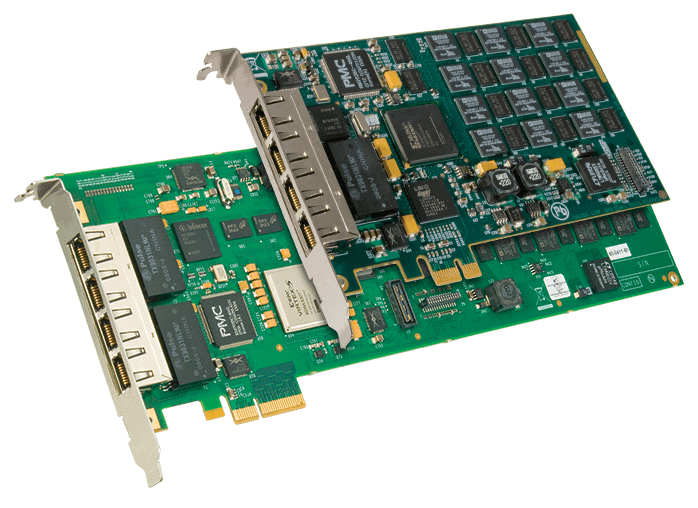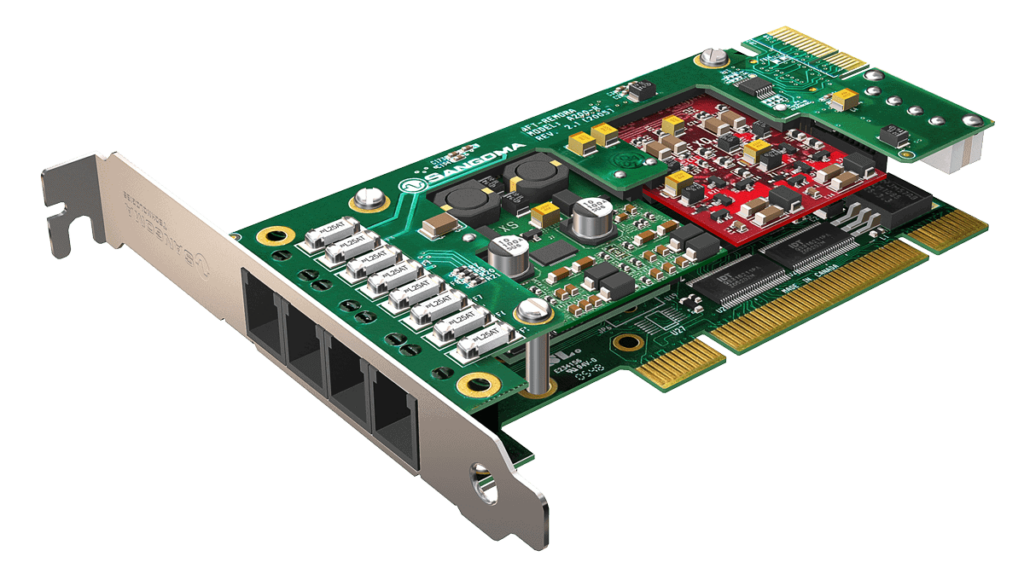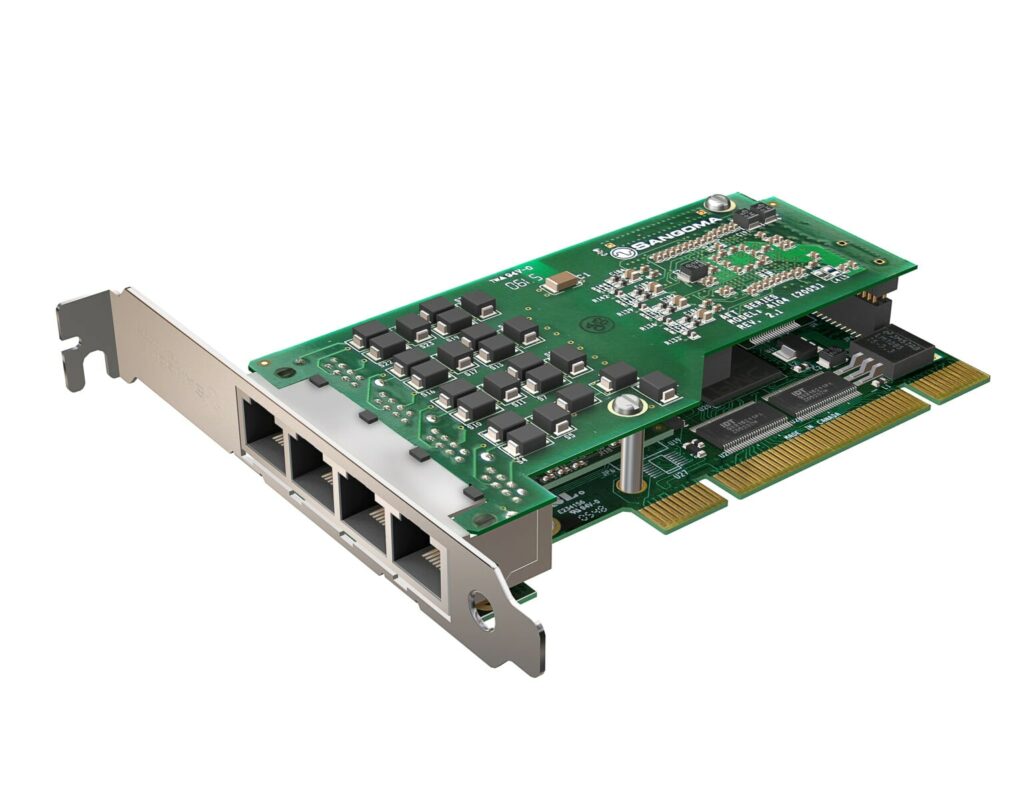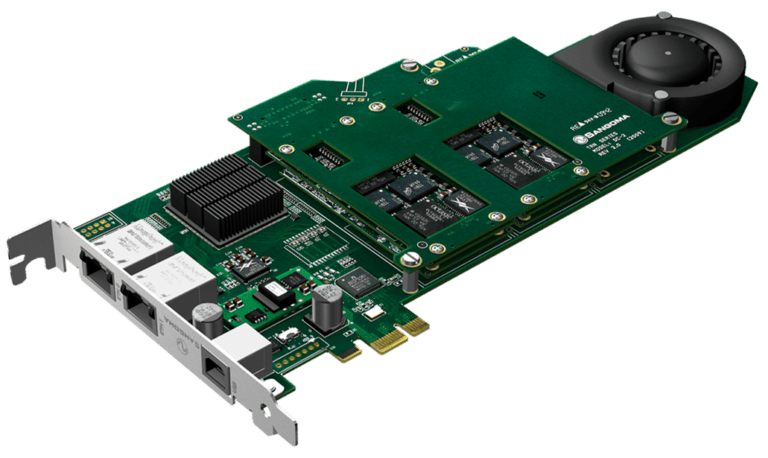Telephony interface cards are PCI or PCI Express expansion cards that connect computers running Asterisk directly to legacy phone lines, phones, and phone systems. The cards convert the legacy signaling and media into Asterisk’s internal formats.
To make connections to traditional telephony interfaces, Asterisk includes a channel type called chan_dahdi (included with your Asterisk download) and a separate set of software drivers collectively referred to as DAHDI – Digium Asterisk Hardware Device Interface.
The DAHDI package includes drivers for a number of traditional telephony interface cards, most notably the telephony cards manufactured by Sangoma®, official sponsor of Asterisk.


Support for analog or “POTS” (Plain Old Telephone Service) lines and phones is provided by Sangoma’s series of analog telephony cards. Sangoma’s analog cards use separate modules for a line (aka Foreign Exchange Office or FXO) and station (aka Foreign Exchange Station or FXS) interfaces. The analog cards are provided in four, eight, and twenty-four modular port varieties for both PCI and PCI-Express slot types. An optional DSP module provides hardware-based echo cancellation for Sangoma’s analog cards.
Sangoma produces a complete line of digital telephony cards for T1/E1 and ISDN connections. The digital cards are provided in one, two, four and eight port varieties in both the PCI and PCI-Express form factors. An optional DSP module provides hardware-based echo cancellation for Sangoma’s digital T1 / E1 / PRI cards. Digital BRI cards include on-board DSP-based echo cancellation.


Transcoding is the process of converting media (audio or video) from one codec to another in real-time. Transcoding is “computationally expensive” – it requires a considerable percentage of your system’s CPU for each call being transcoded. Transcoder cards off-load the transcoding process from the host CPU to a dedicated media processor on the card, which allows the host CPU to process more calls.